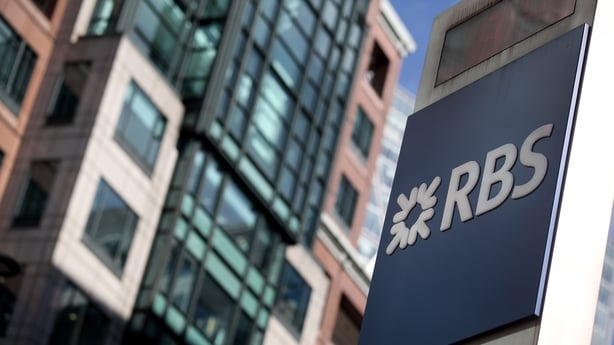A group representing Royal Bank of Scotland investors has accepted an out-of-court deal to settle a lawsuit that aimed to call disgraced former CEO Fred Goodwin to account over a £12 billion cash call in 2008.
Organisers of the RBoS Shareholder Action Group had vowed to see the bank and its former bosses in court.
They told their members today they will accept last week's revised, out-of-court offer after days of intense talks delayed a long-awaited trial.
"Having carefully considered the merits of the current offer ... we have decided to accept the offer of 82 pence per share on behalf of our membership," the action group said in a letter.
The letter, dated May 27, was published today.
"This is a decision which is fully supported by our legal advisers," it added, acknowledging that some of its claimants, who had been keen to hold out longer, might be surprised.
The deal will cost state-owned RBS around £200m, but spare it the embarrassment of having the lowest point in its near 300 year history raked over in court.
Goodwin was nicknamed "Fred the Shred" for his cost-cutting abilities and abrasive management style.
He was first feted and knighted before RBS's near collapse at the height of the credit crisis prompted the world's biggest bank bailout. Shareholders lost around 80% of their investments.
Sources familiar with the case said some shareholders within the group wanted to pursue the case against the bank, if they could find funding.
But the letter indicated that investors representing the necessary threshold of 70% of the value of the claim for acceptance had been reached, one source said.
Investors representing 87% of the claim had already settled their case after RBS put around £800m on the table last year.
In a bid to avoid a trial, Edinburgh-based RBS almost doubled its initial offer to 82 pence per share, from 43.1 pence per share, last weekend.

A deal had been expected. Jonathan Nash, a lawyer for the claimant group, told London's High Court last week that the majority of shareholders were willing to accept RBS's offer and there was a "good prospect" of a final settlement.
RBS's final offer remains a fraction of the 200 to 230 pence per share that shareholders bought RBS shares at in 2008 and denies investors the prospect of seeing Goodwin cross-examined in court.
Goodwin, who left RBS a wealthy man, became a symbol of banker recklessness and greed during the credit crisis.
But lawyers have said the case could have dragged on for years before a court established both whether RBS was liable for investor losses and subsequently quantified any damages.
The RBoS Shareholder Action Group also confirmed that a claimant funding the case had accepted the offer and was no longer willing to pay for further litigation.
All institutional investors are also backing the offer, which would raise the costs for remaining claimants if they were to proceed, it said.
Shareholders were told that around 40-45% of the proceeds of the settlement would be deducted for legal and other costs.
But the group added in the letter there were "many variables which may impact the level of the costs."
RBS investors, including thousands of current and former RBS employees, had alleged the bank's former executives deliberately hid its over-stretched finances and failed to disclose that the regulator had ordered it to raise cash when asking investors to stump up a then-record £12 billion in 2008.
Just months later, the UK government was forced to step in with a £45.8 billion taxpayer-funded bailout.
RBS, which remains more than 70% state-owned, denies any wrongdoing and said its former bosses did not act illegally.
The bank has racked up nine consecutive years of losses totalling £58 billion since the credit crisis, largely blaming "legacy issues" during Goodwin's tenure.

